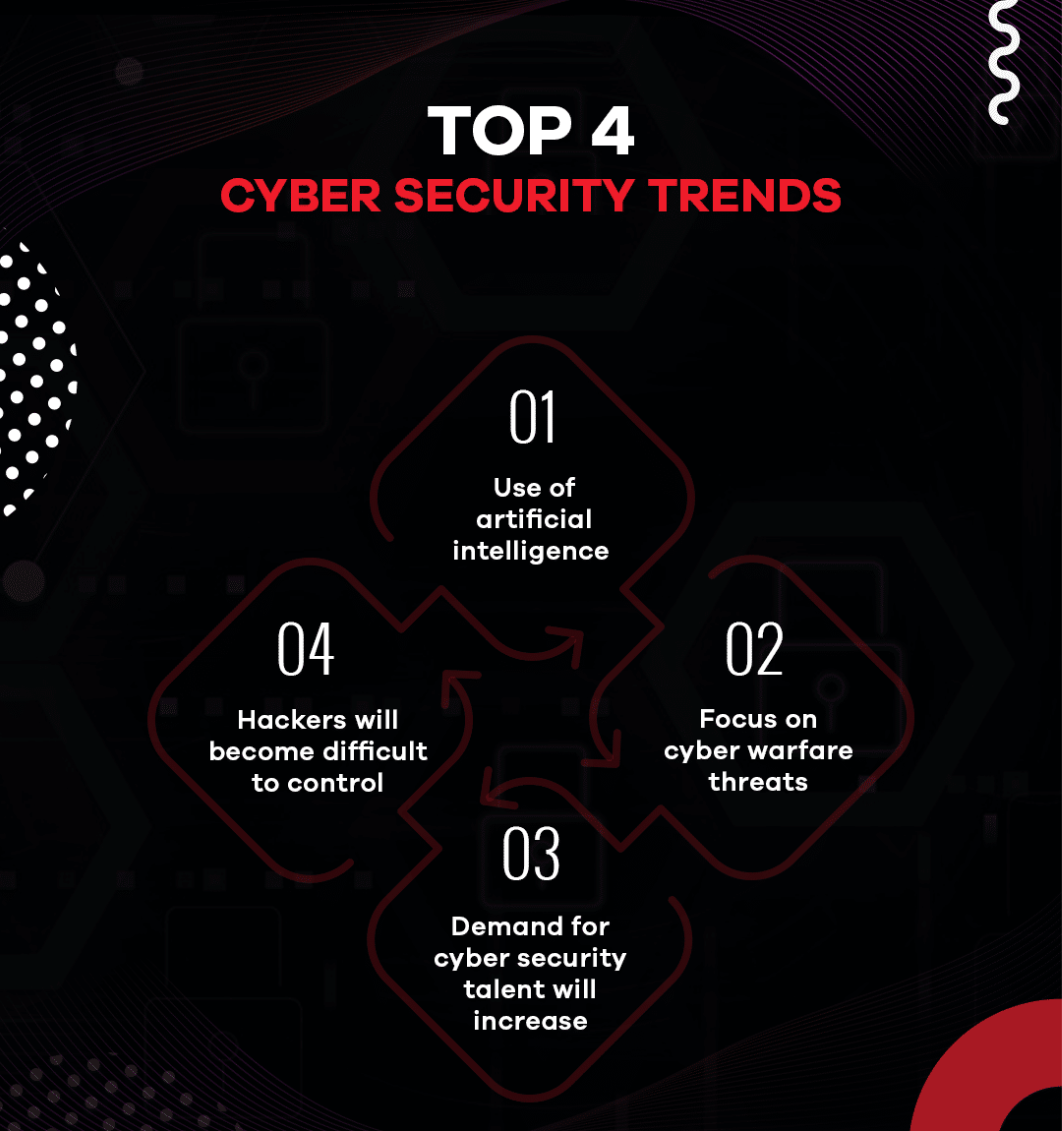
Future of Cybersecurity | How To Beat Cyber Criminals At Their Game
Security Published on Date: November 11th 2021Introduction: Nowadays everyone thinks about that what will be the future of Cybersecurity. So, network safety is yet a somewhat new piece of IT and has changed drastically as of late as it has been perceived as a different discipline inside IT security. In this article, we will lookout for the latest trends for cybersecurity and information protection specifically and attempt to give some knowledge into what digital protection in later years may resemble.
Our personal and business operations are conducted online more than ever. From ordering a favorite meal to working from home since the Covid-19 outbreak, people spend the majority of their time interacting with the internet one way or another. That is why cybersecurity is now regarded as a pressing concern for enterprises. Since the Covid-19 pandemic, the number of malware and phishing threats has increased tremendously. Thus, the demand for cybersecurity and cloud hosting has increased.
According to Allied Market Research, the global cybersecurity market is expected to reach $304.91 billion by 2027, growing at a CAGR of 9.4% from 2020 to 2027. The surge in malware and phishing threats among organizations, increase in demand for cybersecurity solutions, and rise in adoption of the internet of things (IoT) and Bring Your Own Device (BYOD) drive the market growth.
It is important to stay ahead of the curve and understand how cybersecurity will evolve in the future and how it can protect your business and the future of your company. However, predicting the future of cybersecurity is particularly hard due to the ever-evolving nature of the industry in response to changing behaviors of cybercriminals.
Know More: Download VPN
4 Emerging Cybersecurity Trends To Watch Out For 2025
However, there are some major trends for 2025 in the industry that will define the future of cybersecurity.
1. Use Of Artificial Intelligence For The Future of Cybersecurity
AI is not just a buzzword anymore. Companies have been leveraging the technology for their benefit and the major market players in the cybersecurity market are not far from it. AI and machine algorithms can make decisions faster and they can be used to crunch data and automate repetitive tasks.
However, poorly understood technologies such as AI could be a potential threat to cyber-attacks. In the future, AI systems will be targeted. Thus, cybersecurity developers must address the vulnerabilities of AI and detect security issues before cybercriminals take advantage of it. In the future, AI can be used to warn users about risky websites and alert them if they are making poor security choices.
2. Focus On Cyber Warfare Threats
It is said that futurist wars will not use bombs and weaponry, but will be conducted using computers. Over the last few years, the number of state-run or state-sanctioned cyber-wars has increased. Many experts believe that cyber warfare is the deadliest threat to a country’s future. If small or developing nations do not have the resources to tackle such challenges, they will fall short of cyberattacks and will collapse overnight. Thus, cybersecurity companies are more focused on making infrastructure stronger and targeting cyberwar with more resilient security measures.
3. Hackers Will Become Difficult To Control
Computer hacks have become more frequent over the last few years. What’s more, the majority of the cyber-attacks are conducted through automated scripts that scan databases and digital addresses and search for vulnerabilities.
In developing countries, education standards are improving rapidly however, there are not enough jobs for these tech-savvy students. This causes them to turn toward cybercrime. This pattern has emerged in several countries and will continue to make trouble for cybersecurity companies.
4. Demand For Cybersecurity Talent Will Increase
The industry of cybersecurity is changing and thus, the talent requirement. In today’s world, cybersecurity professionals need traditional skill sets such as critical thinking, advanced problem solving, and communication but they need to write security protocols that can help deal with cyber-criminals who are not only creative but leverage the benefits of AI technology. Moreover, training employees to battle cyber criminals is another skill set that is required. Professional experience and knowledge of best practices used are the prime skill sets that can help in a cybersecurity career.
Summary: Future of Cybersecurity
With the help of this article, you can get an overview of the future of cybersecurity. Apart from this, the use of legacy technologies would expose us to cyber threats more than ever. Thus, in the future, the demand for cybersecurity talent will increase. The threat of cybercriminals is hard to eliminate. Thus, companies must improve their game in beating the new, creative ways of cybercriminals. By investing in cutting-edge technologies and hiring expertise, cybersecurity companies can do their part in securing the online activities of their users. However, there are some practices users can adopt such as using strong, complex passwords and not falling to tricks to open unsecure emails and attachments.
Author Bio

Swamini Kulkarni
Swamini Kulkarni holds a bachelor’s degree in Instrumentation and control engineering from Pune University and works as a content writer at Allied Market Research. She is deeply fascinated by the impact of technology on human life and loves to talk about science and mythology. When she is not glued to the computer, she loves to read, travel and daydream about her areas of interest.
